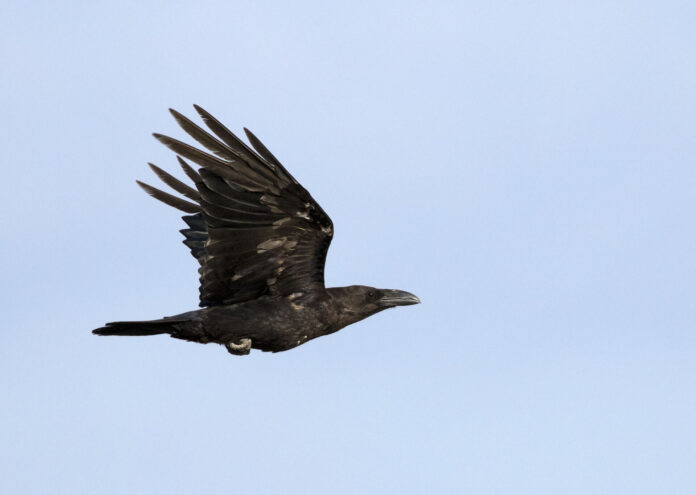The Department of Environment and Climate Change announced two confirmed cases of the Highly Pathogenic Avian Influenza (HPAI) identified in wild birds in the city of Yellowknife.
The cases of HPAI were identified in a raven and a ring-billed gull. Environment and Climate Change (ECC) GNWT said that they are in the process of conducting more testing on potential cases.
“Testing identified the H5 strain, consistent with HPAI, which is highly infectious among birds. There is no sign of an outbreak, and risk to other birds remains low. While the transmission of bird flu to humans is rare and relatively mild in nature, the NWT Chief Public Health Officer, Dr. Kami Kandola, advises residents to remain cautious when handling birds,” said representatives from GNWT’s Environment and Climate Change department.
Officials said that nine confirmed cases of HPAI have been identified in N.W.T. since 2022.
Representatives from ECC said they regularly monitor wildlife, including birds, across the territories.
“ECC routinely assess and test wild birds (and other wildlife species) that are reported to us as sick, injured or found dead, as part of our long-term monitoring of wildlife and wildlife health. Birds are highly mobile, and in this case, they were reported by members of the public within Yellowknife city limits. While this isn’t part of a research study, it contributes to ongoing wildlife health surveillance work conducted by ECC and our national wildlife health partners,” they explained.
ECC cautioned the public to take precautions to minimize and prevent potential exposures to bird flu.
“We would like to remind the public to avoid direct contact with wild birds that are sick or dead. If you see any sick, injured, or dead wildlife, please report it to your ECC Regional Office. For more information about avian influenza, visit: Avian Influenza – What You Need to Know https://www.gov.nt.ca/ecc/en/services/wildlife-diseases#avian-influenza”
In their annoucemtn today, GNWT shared some important safety guidelines for the public
- Don’t handle wild birds that are found dead or live birds acting strangely. Don’t touch surfaces that could be contaminated.
- Report sightings of sick, injured, or dead wildlife to your ECC Regional Office as soon as possible. Provide details such as the date, time, location, and a brief description.
- If you are experiencing any respiratory or flu-like symptoms, AND have been recently (within 10 days) in contact with wild birds or domestic birds showing signs of illness, reach out to your local health centre or call 811 immediately for assessment and advise them of your bird exposure. Seasonal Influenza vaccines do not offer protection against Influenza A(H5N1).
GNWT offered tips for hunters and anyone who is regularly in contatct with birds.
Tips for Safe Handling of Birds:
If you hunt wild birds:
- Wear gloves and wash hands frequently while dressing them.
- Process birds in a well-ventilated area, like the outdoors.
- Disinfect equipment, surfaces, and clothing afterward.
- Cook meat to an internal temperature of at least 165 °F (74 °C).
Environment and Climate Change encourages anyone who would like to learn more to visit their website where more information can be found about Avian Inflenza
For questions about wild birds in the NWT, GNWT asks the public to contact the Canadian Wildlife Service at [email protected] .





